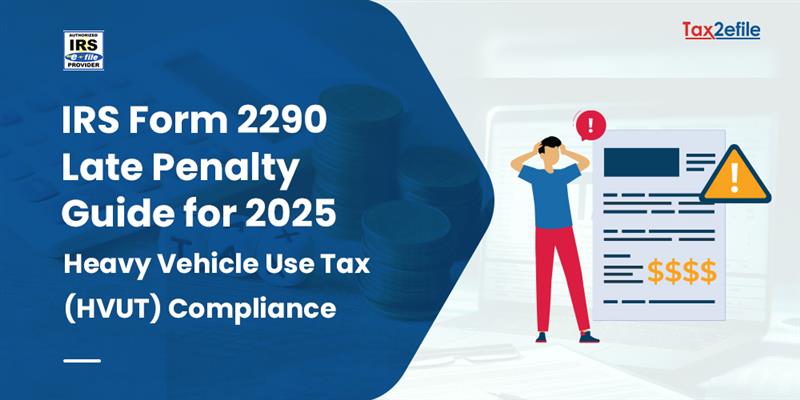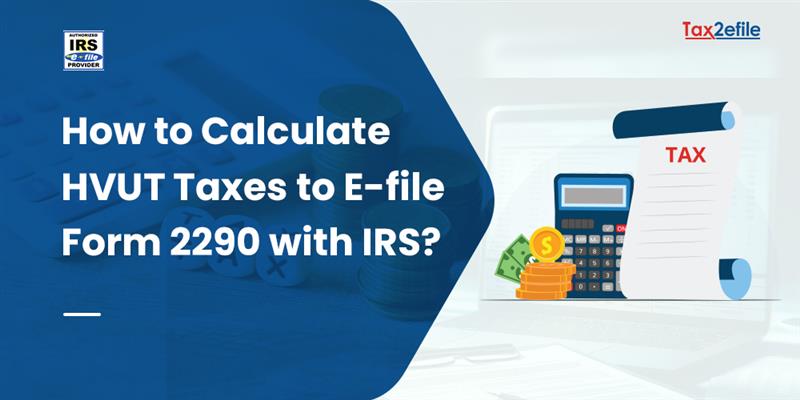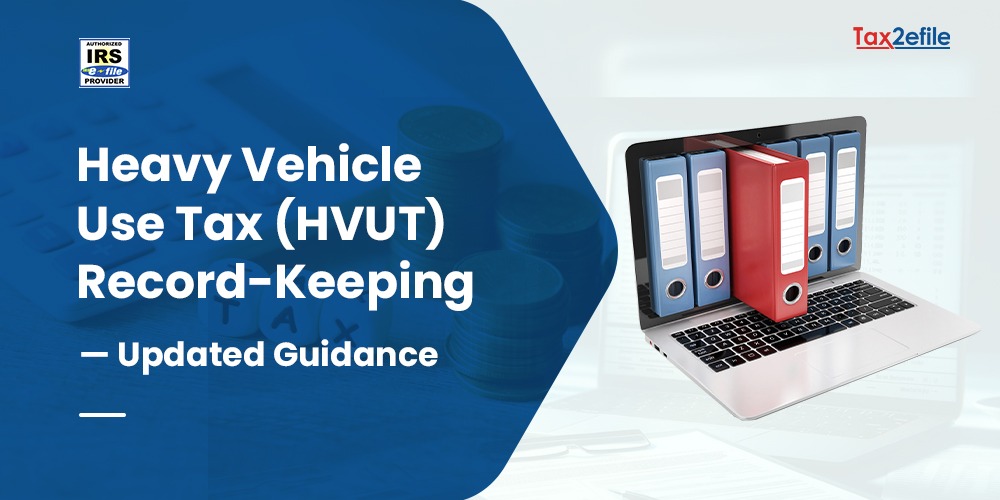- July 16, 2025

Did you know how much the IRS penalties are for not filing Form 2290 in 2025? Late filing of your HVUT tax returns not only results in IRS penalties, but also a high risk of vehicle registration suspension. Whether you are a truck operator, fleet owner, or any business that uses heavy vehicles on public highways, you must be aware of the HVUT deadlines. In this guide, we will provide you the valuable information about different types of IRS penalties that could save you from consequences.

HVUT Form 2290 Late Filing Penalty
If Form 2290 requirements are not met, the IRS enforces severe penalties. Since the HVUT makes a substantial contribution to the Highway Trust Fund, which in 2024 funded $47.3 billion in highway and transit projects, these fines are intended to ensure timely filing and payment. Based on IRS guidelines and recent updates, the following are the major penalties for the 2025–2026 tax year.
Penalty for Late Filing of Form 2290
The IRS charges a late filing fee of 4.5% of the total tax due per month, up to a maximum of 22.5% after five months, if you don’t file Form 2290 by the September 2, 2025, deadline (or the last day of the month after the vehicle’s first use month for vehicles used after July).
Example Calculation:
-
For a vehicle with a taxable gross weight of 77,000 pounds, the HVUT is $550.
-
If the filing is delayed by five months, the penalty would be:
-
4.5% x $550 x 5 = $123.75.
-
-
Additionally, states may suspend vehicle registration if proof of HVUT payment (a stamped Schedule 1) is not provided, halting operations.
Penalty for Late Payment of HVUT
Not paying HVUT on or before the due date will result in an extra late payment penalty of 0.5% of the total tax due each month; however, the penalty cannot exceed 25%. Apart from this, the IRS will also charge at the rate of 0.54% per month on the amount of tax not paid.
Example Calculation:
-
For a $550 HVUT liability:
-
Late payment penalty after five months: 0.5% x $550 x 5 = $13.75.
-
Interest after five months: 0.54% x $550 x 5 = $14.85.
-
-
Total additional cost: $123.75 (late filing) + $13.75 (late payment) + $14.85 (interest) = $152.35.
-
The original $550 tax liability increases to approximately $702.35 after five months of delinquency.
Penalties for False or Fraudulent Returns
When you submit a fake or fraudulent Form 2290, you may face severe consequences, including fines and potential incarceration. A case in point is when a small trucking company owner was given a sentence of four months in jail, four months of home confinement, and a fine of $2,000 to cover the evasion of the heavy vehicle use tax through continuous vehicle re-titling. These consequences put you at risk when IRS audits and long-term compliance issues.
State-Level Consequences
Apart from the federal fines, the state also takes action by suspending the registration of vehicles that are non-compliant with HVUT requirements. This leads to the truckers being prevented from operating their vehicle on public highways, business distraction, and loss of revenue.
IRS Form 2220 Late Filing Penalty Relief
The IRS provides penalty relief for taxpayers who have a valid reason. The reasonable causes include sickness, natural disasters, or unexpected delays in getting records. The taxpayer must write a letter to the IRS explaining the reason for the delay.
Include evidence supporting your claim, such as medical records or proof of a natural disaster.
The IRS might decide not to apply penalties if you provide evidence that the delay happened due to circumstances beyond your control. However, if the penalty remains, the interest charges cannot be canceled.
How to Avoid Form 2290 Penalties
The most effective way to avoid penalties is to file and pay your HVUT on time. Here are practical steps to ensure compliance.
E-File for Speed and Accuracy
For those who report 25 or more vehicles, the IRS recommends to e-filing option.
Instant Schedule 1: Get your Stamped Schedule 1 in within minutes of IRS acceptance, instead of waiting up to six weeks for paper filing
Error Reduction: E-filing platforms like Tax2efile not only offer tax filing but also verify your entries. Therefore, errors in common categories such as Vehicle Identification Numbers (VINs) are prevented.
Cost-Effective: E-file services are cost-effective; sometimes, taxpayers get a discount offer for the filing fee.
Real-Time Statistics: Data from the IRS shows that more than 80% of Form 2290 filings were submitted electronically, and 95% of those e-filers received their Schedule 1 within 24 hours.
Pre-File Early
Don’t wait until the official tax season begins. Many IRS-authorized e-filing providers, such as Tax2efile, open pre-filing as early as May. Pre-filing not only helps you avoid last-minute delays but also gives access to exclusive discounts offered during this early filing period.
Use IRS-Authorized Payment Methods
Pay your HVUT using IRS-approved methods to avoid delays:
-
Electronic Funds Withdrawal (EFW): Authorize a direct debit during e-filing.
-
Electronic Federal Tax Payment System (EFTPS): Schedule payments by 8 p.m. EST the day before the due date. Enrollment takes 5-7 business days.
-
Credit/Debit Card: Pay through third-party providers supporting Visa, Mastercard, American Express, or Discover.
-
Check/Money Order: Use Form 2290-V (Payment Voucher) and mail to the IRS. This method is slower and not recommended unless e-filing is unavailable.
Correct Errors Promptly
If you don’t make corrections to wrong vehicle identification numbers (VINs) or the taxable weight, then you might be subjected to a penalty. Free VIN correction is generally available among e-filing providers.
Get Reminders
Subscribe to email notifications from your e-filing service provider to receive important IRS updates, deadline reminders, and other essential news. It’s a simple way to stay informed and avoid missing critical HVUT deadlines.
Get Started by Registering with Tax2efile Today!



